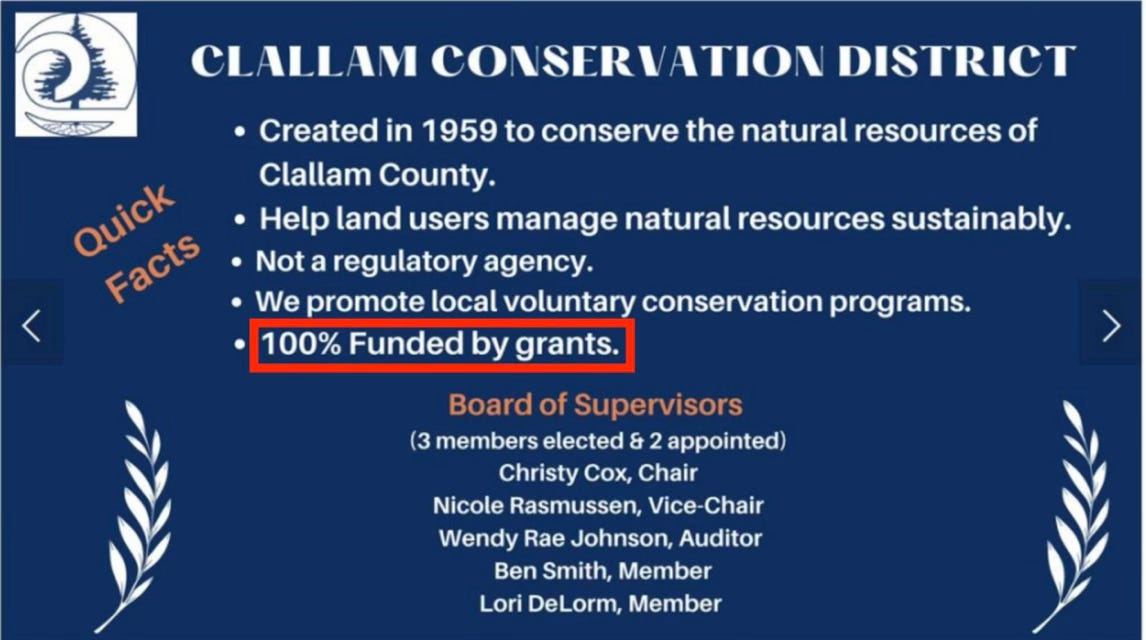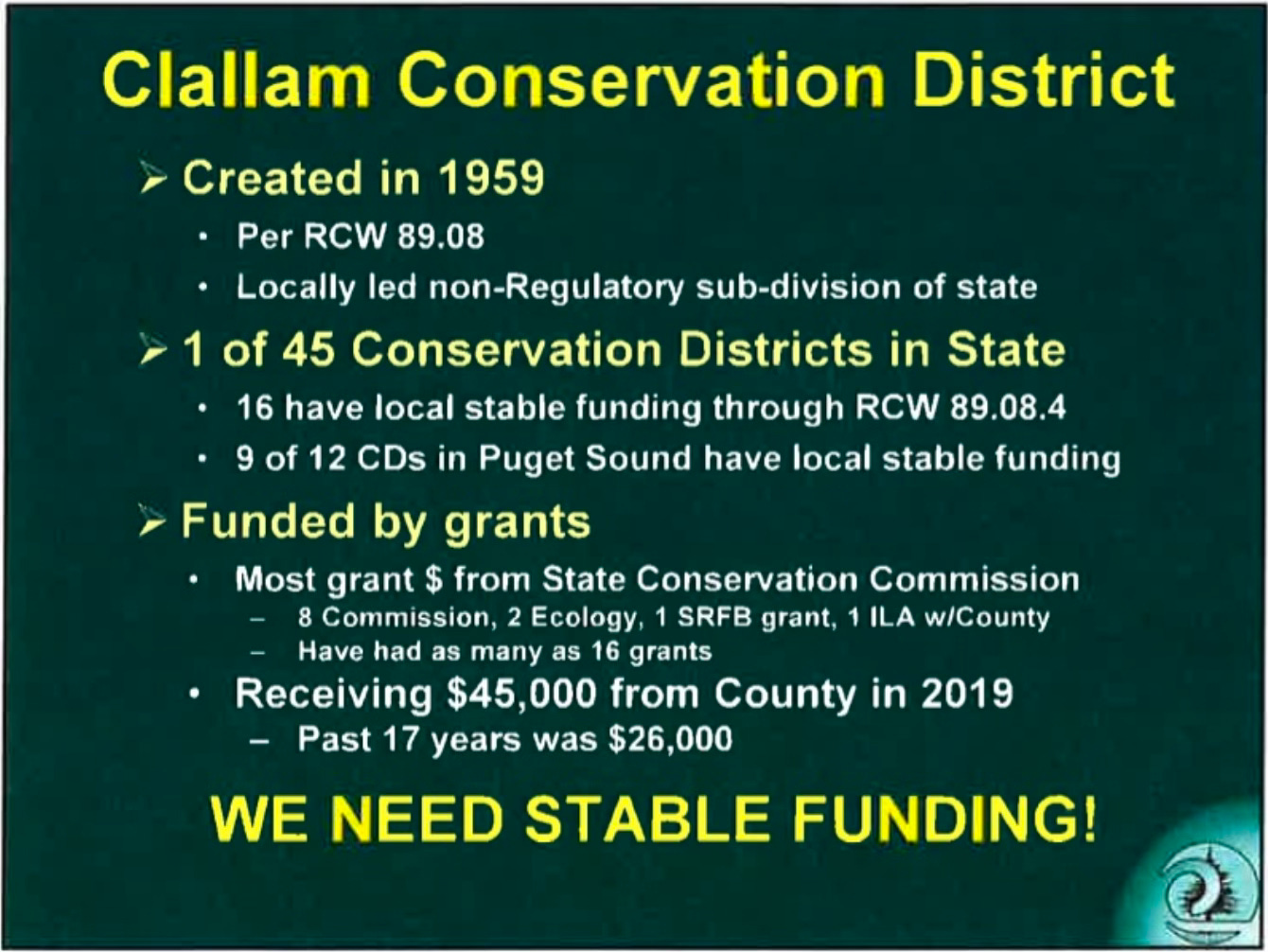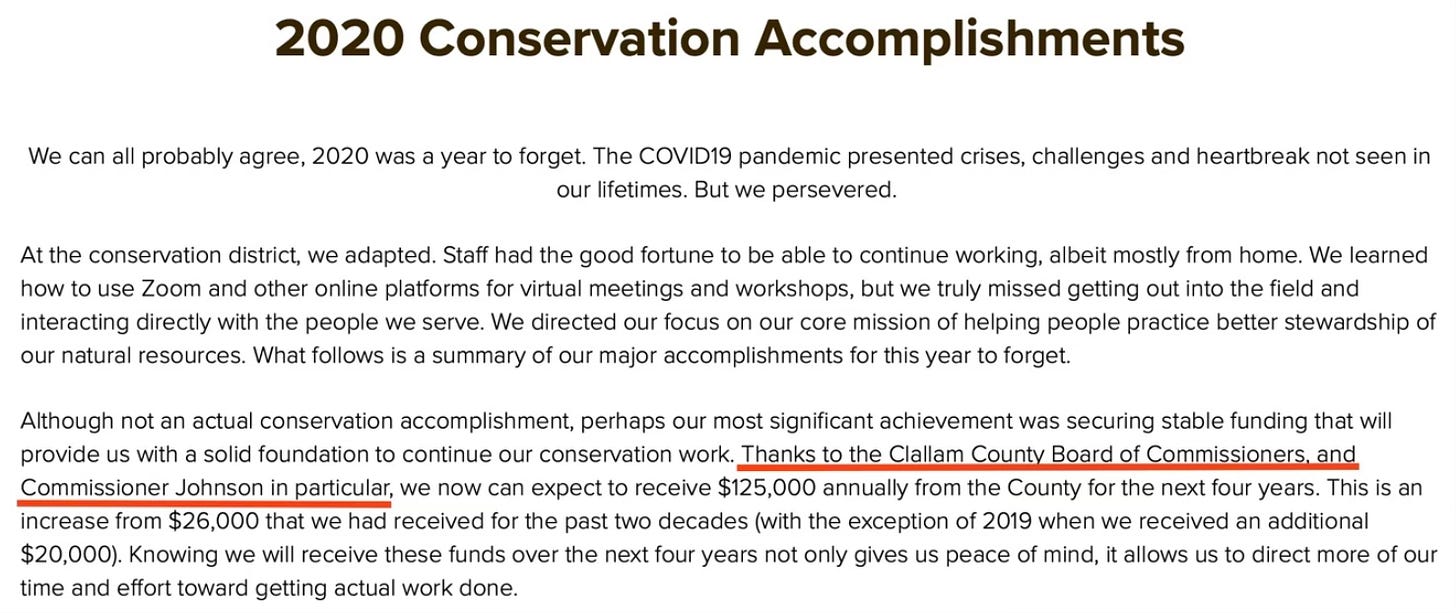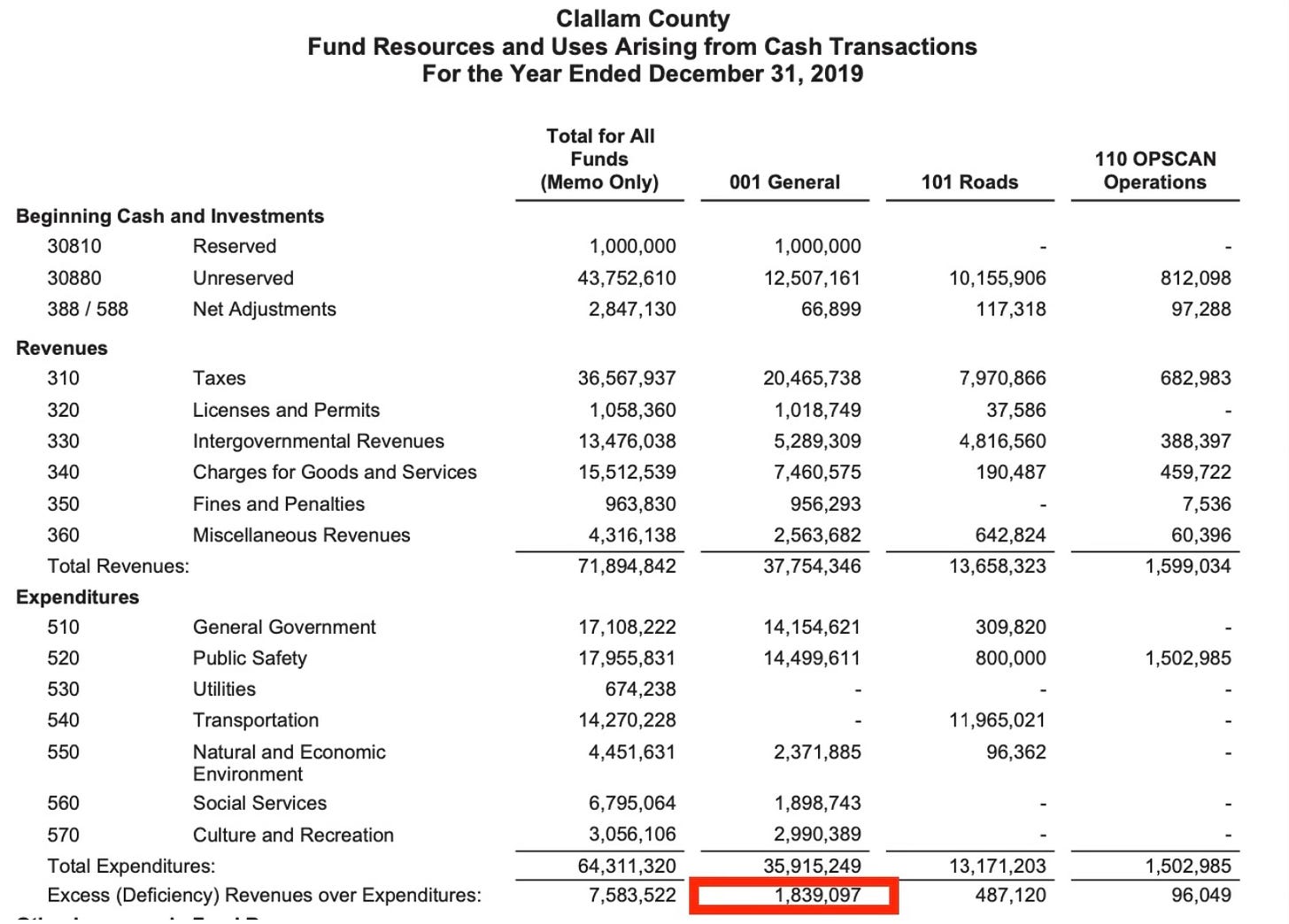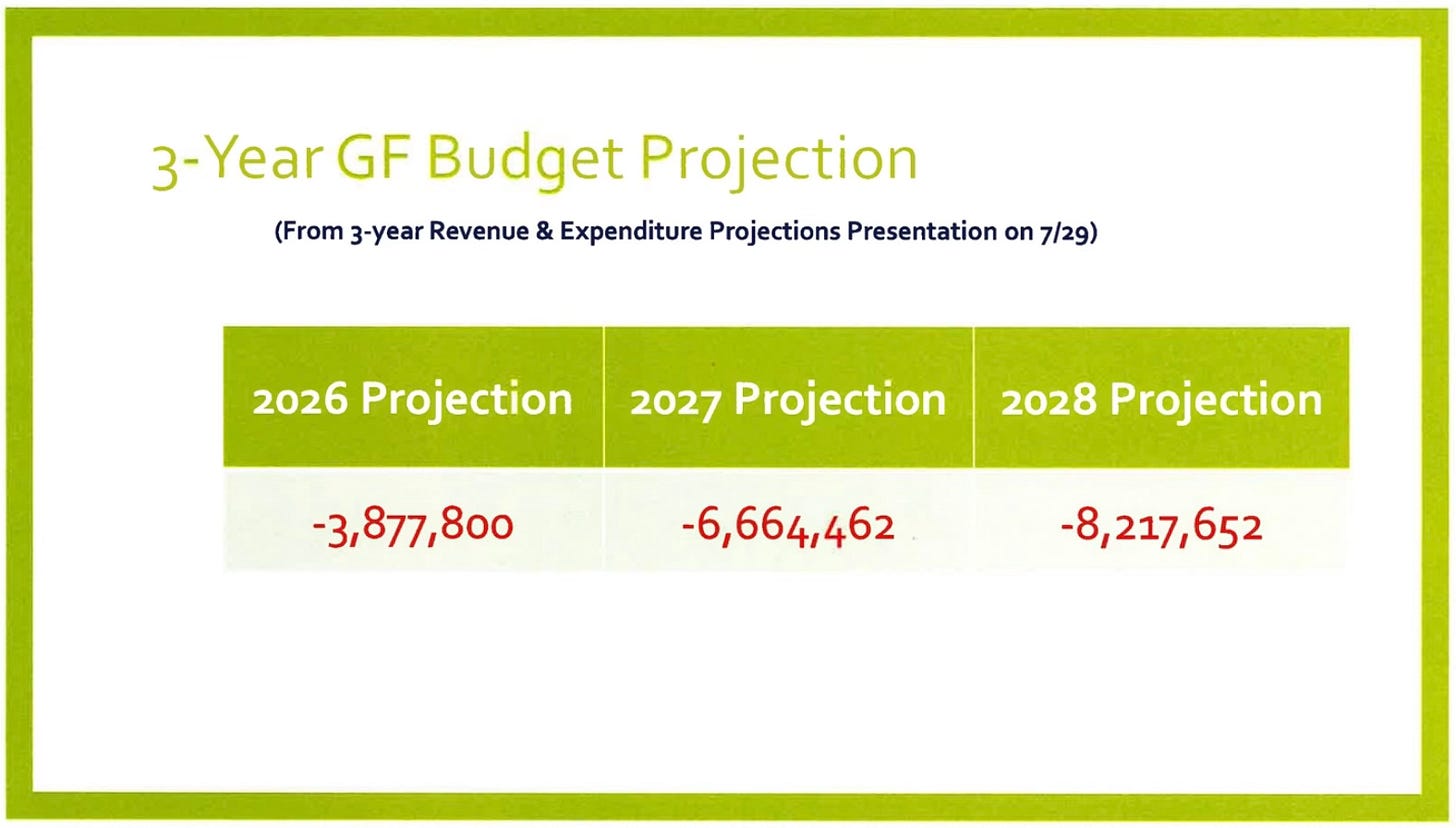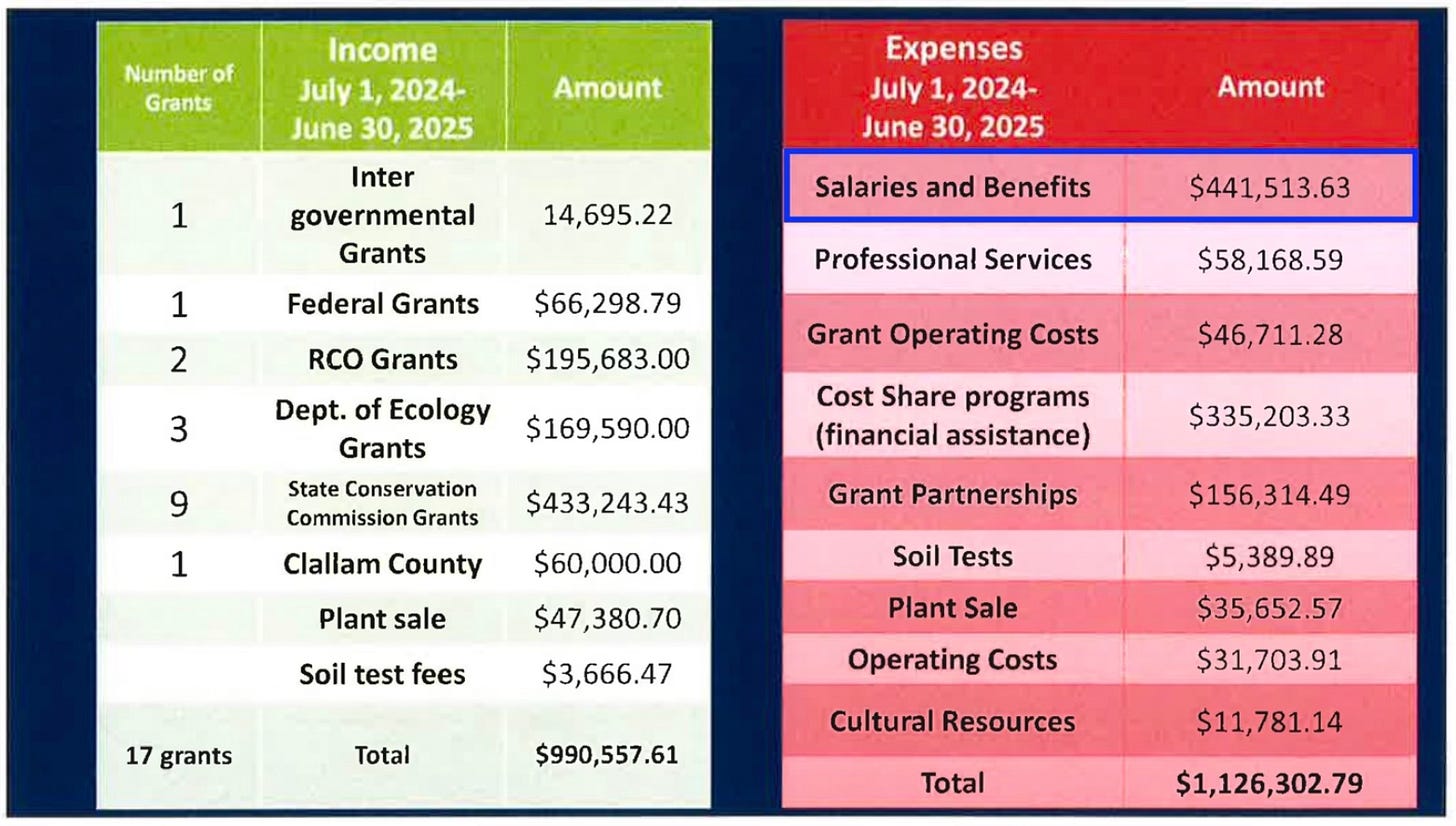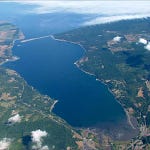When panhandler Kurt in El Paso asked CC Watchdog guest contributor Jake Seegers for change, at least he admitted it was a hustle. The Clallam Conservation District is far less honest. On September 2, County Commissioners will decide whether to impose a $5 parcel fee that bypasses the ballot box—locking taxpayers into $200,000 a year for fish-centric projects and rising staff pay. With a county deficit looming, the question is simple: will Clallam prioritize public needs, or cave to another handout?
By Jake Seegers, guest contributor
Confessions of a Panhandler
When I lived in El Paso, Texas, I met Kurt. He stopped me in the parking lot of Sprouts Farmers Market, hat in hand, pleading for bus fare to New Mexico. Family was waiting for him there, he claimed. After a long conversation and some shared laughs, he admitted the family didn’t exist.
Kurt was a professional panhandler. He opened for business at 10 a.m. sharp and treated it like a job. In his mind, he was helping people. Some paid for the glow of self-congratulation, others paid for a bit of penance. Kurt was well-compensated.
Some mornings, I would drop Kurt off at Sprouts. He would always grin and say, “See you after work!”
As we became friends, I tried to help Kurt find something more stable than the weekly-rate motel he called home. But every option clashed with his chosen way of life. In the end, he preferred living on handouts.
The $5 Hustle
The Clallam Conservation District (CCD), an entity that relies entirely on government handouts, wants the Board of Clallam County Commissioners to impose a $5 annual parcel fee on property owners. The fee would generate about $200,000 per year for the next decade—and any unpaid fees would become a lien against your property (RCW 89.08.405(6)).
Unlike a school, fire, or park levy, this fee can be approved directly by the commissioners without a public vote. On September 2, 2025, the commissioners will hold a public hearing on this proposal.
CCD insists its work justifies the fee. But, unlike Kurt, they will not be asking for it, hat in hand. They expect it.
After offering public comment at the July 25th Conservation District Parcel Fee Hearing, I spoke with several members to acknowledge their work, even where we disagreed. Supervisor Maggie Bockart surprised me with her reply: “Oh, I think we DO agree.” She, too, dislikes the parcel fee and contends that the district should be supported “by the 1%” and run by volunteers.
But, unlike Robin Hood, this band of biologists and self-proclaimed “soil advocates” has yet to determine a foolproof plan to pilfer the rich. Instead, they plan to fleece the taxpayer. And, if history is a guide, our county commissioners are poised to help them do it.
How We Got Here
Grant revenue is unpredictable. In fact, CCD’s most recent work plan allocates $60,000 to staff tasked with securing it.
Grants do not always cover all indirect costs, which is why CCD’s constant refrain is, “We need stable funding!” CCD claims that this “stable funding” is “critical to cover expenses that grants do not fund, such as grant-writing and presentations, our soil testing program, elections, and rising operational costs.”
Back in 2019, Joe Holtop, then executive director of CCD, emphasized this point during the April 8th BOCC Work Session.
According to Holtop, CCD received $26,000 annually from the county’s general fund from 2001 to 2018, rising to $45,000 in 2019. He argued that the district needed a more substantial safety net and proposed a $5 parcel fee to the county commissioners during the 2019 work session.
One day later, Peninsula Daily News reported on CCD’s Parcel Fee Plan:
“He (Holtrop) said the district still needs to conduct a rate study, but the charges would be a maximum of $5 per parcel and $3 per forest landowner, he said. He said the plan is to submit a proposal and hold a public hearing by Aug. 1.”
By CCD’s June 11th, 2019 Board Meeting, the district had already secured a deal with the commissioners: $125,000 per year for five years from the county’s general fund.
So what happened between April 8 and June 11? A few sticking points emerged with the proposed $5 parcel fee:
District 3 Commissioner Bill Peach worried the timeline for approval would not allow adequate consultation with constituents. He was also reluctant to support a proposal that would raise taxes on Clallam parcel holders (May 20, 2019 Work Session).
CCD hesitated to spend roughly $30,000 on legal and professional fees for a “rate study” without confidence in the commissioners’ support (April 8, 2019 Work Session).
“That [rates and charges] study could cost up to $30,000 and we don’t want to spend that money unless we know we’re getting some direction that, yes we’re going to, kind of, start drifting down that road…spending money we don’t have to further the cause is one thing. Spending money we don’t have to say, ‘goodbye’ is another.”
After attending a CCD board meeting, Commissioner Johnson, who described himself as “gungho” for CCD’s efforts, stepped in to save the day. During the May 20, 2019 commissioner work session, he proposed the five-year, $125,000-per-year plan to the other commissioners.
Commissioner Peach supported the plan because it did not impose a direct long-term burden on taxpayers and allowed the board to “pivot” if the expense could no longer be justified from the county’s general fund.
Commissioner Ozias was also on board.
CCD’s April 2021 Newsletter praised the commissioners: “Thanks to the Clallam County Board of Commissioners, and Commissioner Johnson in particular, we now can expect to receive $125,000 annually from the County for the next four years.”
That deal expired in 2024, and the commissioners will end support from the general fund altogether in 2026.
So why did the commissioners abandon direct county funding, and why are they currently revisiting a potential parcel fee approval? One explanation may lie in the numbers: in 2019, Clallam County enjoyed a $1.8 million surplus. Today, it projects a deficit of more than $8.2 million by 2028.
Growth With No Plan
CCD was given a five-year lifeline by Commissioner Johnson and the other commissioners. Instead of using this time to secure an alternative, non-taxpayer-funded safety net, the district focused on growth. While the county’s financial outlook worsened, CCD expanded staff by 42%, growing from three full-time equivalents to 4.25 today.
Now, instead of right-sizing, CCD plans to prolong and INCREASE the burden on taxpayers. If it successfully secures $200,000 annually from a $5 parcel fee, the district would net $75,000 more than its previous $125,000 deal with the commissioners.
During last month’s hearing, members were asked how the additional money would be used. District Manager Kim Williams suggested increasing water conservation efforts and growing the Firewise programs. Board Chair Christy Cox floated the idea of rainwater collection as another area of expansion.
But that isn’t the whole story. CCD plans to increase salaries and benefits by 22.7%—funded in part by your parcel fee. As of June 30, 2025, the district reported annual salaries and benefits of $441,513.63.
In 2026, that number is projected to jump to $541,778.23 — an increase of $100,264.60.
When asked for clarification, District Manager Williams confirmed by email that the increase reflects cost-of-living adjustments (COLA) and expanded staff hours. She also claimed that most of CCD’s salaries are funded by grants, but has yet to provide supporting details.
For now, CCD promises to keep the parcel fee flat at $5 for ten years. But, under Washington House Bill 1488, that fee could climb to $25 per parcel with commissioner approval.
CCD’s strategy is clear: expand operations, then demand more from taxpayers. Approving today’s $5 fee would surely chart the course toward a $25 fee and a $1 million annual slush fund.
Who Really Benefits?
The Conservation District insists its work provides “public benefits for all.”
But while CCD highlights services for farmers and water conservation, its funding and staff time appear overwhelmingly geared toward fish, not people.
Examining CCD’s 2024 grant funding confirms its fish-centric philosophy. A conservative calculation demonstrates that at least 87% of grant funding is tied directly to fish or fish habitat efforts.
In her August 8 update to the county commissioners, District Manager Kim Williams highlighted the intensive effort behind restoring just 2.92 miles of fish habitat over the past year. The work included planting 24,831 trees and shrubs across 19 sites spanning 158.6 acres, clearing invasive blackberry thickets, and committing to five years of ongoing buffer maintenance.
Fish passage projects are similarly resource-intensive.
When it comes to clean water for human consumption, the most compelling service that CCD offers is the “on-site septic cost-share program”.
But only a handful of septic systems are replaced annually, and this, too, is driven by salmon preservation. Ms. Williams elaborated, “Our [criteria for septic replacement] are very specific for the resource concern. They have to be close to salmon-bearing waterways or water that goes into a salmon-bearing stream.”
The few homeowners who do qualify for septic assistance are responsible for 25% of the cost. But, this can be covered by the Conservation Reserve Enhancement Program (CREP), another salmon-centric grant.
CCD farmer services, touted as “free of charge,” are largely confined to three categories: soil testing, cover cropping, and livestock containment/manure storage.
Yet, even these efforts closely mirror the “Salmon-Safe” certification promoted by the Cascadia Conservation District, CCD’s counterpart in Chelan County. Listed below are CCD services that promote the requirements placed upon Salmon-Safe certified farms.
While these services may offer farmers some gains in soil health and crop yields, they also neatly align with CCD’s fish-first agenda. And compared to riparian restoration, farmer support appears far less staff-intensive. Last year, CCD handed out 20,500 pounds of cover crop seed—just 410 fifty-pound bags—and farmers conducted the on-site sampling for 171 soil tests themselves. CCD’s role was simply to mail the samples and help interpret the results.
Since CCD does not actively promote traditional fertilization techniques, soil testing seems to function as a funnel for its cover-crop program, which supports salmon habitat.
To their credit, the Clallam Conservation District coordinates an annual native plant sale that is enjoyed by 375 county residents. The plant sale generated nearly $12,000 in income for the district last year.
While fish habitat restoration may be a worthy cause, our county doesn’t need another tax that prioritizes “wants” over “needs.” July budget meetings made one thing clear: Washington State legislative mandates are a significant source of Clallam’s budgetary bottlenecks. Compliance with these “wants” undercuts fiscal flexibility and has left our county facing a public safety deficit.
“Stable funding” for the Clallam Conservation District is a “want.” Fortunately, it is optional, giving commissioners flexibility to remove it from the county’s overburdened budget. Unfortunately, the commissioners have the power to turn this discretionary spending into a long-term taxpayer obligation.
But who should pay to back-stop this growing grant-fueled team? Since 2019, Clallam taxpayers have already provided CCD with $730,000 in “stable funding” through the county’s general fund. In return, what alternative, sustainable sources of funding—beyond the proposed parcel fee—has CCD explored during that time? To date, their most ambitious effort seems to be auctioning a 2012 Subaru with a minimum bid of $8,500 (thanks, Kärin)!
I asked CCD officials this question directly at the Fee Hearing. I suggested that farmers, septic owners, and native plant enthusiasts—who are the primary human beneficiaries of CCD services—could be asked to contribute more.
The response? “Do you like drinking water?” “Do you eat? Then you are a recipient of the benefits.” As if clean water and food are unattainable to over 76,000 Clallam County residents without CCD’s salmon-centric efforts.
This non-answer revealed CCD staff’s unwavering belief system: their ideology is irrefutable. If they ask, taxpayers must give.
I was reminded of a lesson with my oldest son, who asked to be paid for basic chores like cleaning his room and washing dishes. I explained that some tasks are part of life. To earn money, he must develop skills that are scarce and valuable. People will pay for services that save or make them money or provide otherwise unattainable benefits.
A local example is trash clean-up and temporary shelter non-profit, 4PA, which is also in the business of habitat restoration (human habitat, that is). Residents and businesses have supported 4PA’s efforts because it delivers tangible, innovative solutions to problems that have long eluded government.
In 2024, 4PA raised $340,000—all private donations, no grants.
CCD raised $25.
Apparently, fish don’t have pocketbooks.
Based on CCD’s Accomplishments Report, the district generated a 2024 SURPLUS of $169,487, NOT counting a $125,000 contribution from the county’s general fund. Projections indicate a similar surplus in 2025.
If CCD finds its budget surplus insufficient, it could reduce staff to 2019 levels or cut rent and utilities by working remotely.
If, instead, maintaining staff and growing payroll and services are priorities, CCD could pursue voluntary public support. After all, if “all of the public” truly benefits, there should be no difficulty matching 4PA’s success in raising contributions. A starting point might be the farmers, 375 native plant sale customers, and 104 volunteers who already engage with the district.
Instead, CCD is asking the commissioners to saddle taxpayers with a $200,000 annual obligation—and the district seems confident it will get it. Unlike their 2019 predecessors, current management invested in a consultant to craft their “rates and charges” proposal, viewing the Board of County Commissioners (BOCC) as a “partner” based on past history.
But the county’s budget is fragile, and public funding is increasingly uncertain. Mandating taxpayer-backed support for discretionary, grant-funded projects sets a dangerous precedent and would deepen Clallam’s fiscal emergency. It is time to prioritize “needs” over “wants.”
It is fitting that County CFO Mark Lane will present a revised draft of the county’s 2026 budget at the very same September 2nd, 2025, Commissioner’s Board Meeting as CCD’s parcel fee hearing. With a multi-million-dollar shortfall looming, commissioners have claimed they are searching for expense reductions. They have already flagged discretionary funding to CCD as one of those cuts. But a vote for this parcel fee is not a reduction at all—it is an increase, a direct transfer of cost to the taxpayer, and a refutation of any commissioner's claim to fiscal responsibility. If commissioners approve this fee, they aren’t cutting expenses—they’re simply disguising them as a new tax.
Because the commissioners will decide the fate of CCD’s philanthropic demands, they need to hear public opinion. Citizens should convey the expectation that the commissioners vote in a manner that reflects the desires of the people, leaving personal opinions at the door. It’s time for this oversized fish to swim on its own.
What can you do?
The Board of Clallam County Commissioners will hold a hearing on:
🗓 Date: Tuesday, September 2, 2025
⏰ Time: 10:30 a.m.
📍 Location: Clallam County Courthouse, Room 160
223 East 4th Street, Port Angeles, WA
This decision could lock taxpayers into a $200,000 annual parcel fee.
Please show up in person and make your voice heard. Let’s pack the courthouse—this is a big deal.
🖥 Participate via Zoom
Audio Only
📞 Dial: 253-215-8782
Meeting ID: 836 9266 4344
Passcode: 12345
(*Press 9 to raise your hand)
Video Conference
🔗 Join Zoom Meeting
Meeting ID: 836 9266 4344
Passcode: 12345
✍️ Submit Written Comments
Clerk of the Board: Loni Gores
📧 Email: Loni.Gores@clallamcountywa.gov
📬 Mail: 223 East 4th Street, Suite 4, Port Angeles, WA 98362
Last Sunday, Jake Seegers asked readers when it’s okay for our leaders to hire outside the county. Out of 218 votes:
80% said, “When there is no local option”
13% said, “Never”
7% said, “When it saves money”
0% said, “When it saves time”




